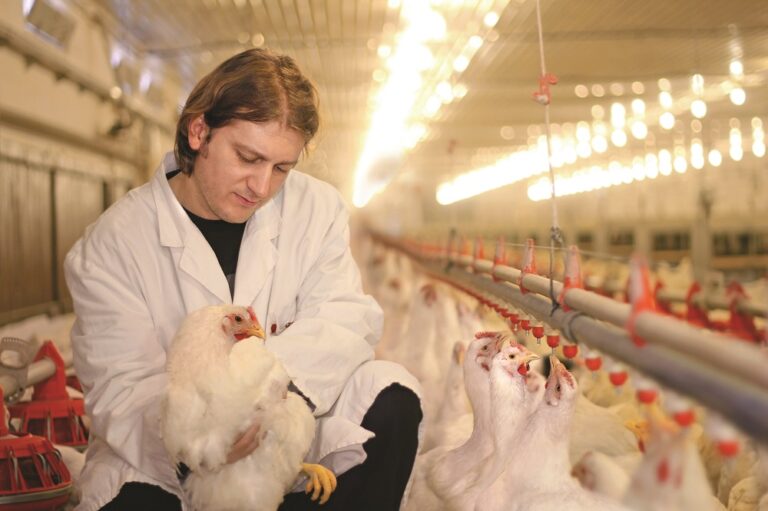The British Poultry Council has released its 2019 Antibiotic Stewardship Report which highlights antimicrocial use in the British poultry meat sector.
According to the new report, in the last six years (2012-2018) the BPC Antibiotic Stewardship has helped achieve:
• 82.2% reduction in the total use of antibiotics
• 90.6% reduction in the use of critically important antibiotics
• 39.36% reduction in the total use of antibiotics in the last year (2016-2017)
In 2018, the sector used
• 16.2 tonnes of antibiotics resulting in a 12.4% increase in year-on-year usage
• 7.1% of the total antibiotics licensed for food producing animals in 2017 as compared to 21% in 2012
British Poultry Council Chairman, Graeme Dear, said: “With poultry being half the meat eaten in the country, the British poultry meat industry’s Antibiotic Stewardship is playing a crucial role in delivering good bird health and welfare; ensuring responsible use of antibiotics, safeguarding the efficacy of antibiotics, and helping produce food consumers trust.
“Our farmers and veterinarians need antibiotics in their toolbox to protect the health and welfare of birds. Delivering excellence in bird health and welfare is the foundation of responsible use of antibiotics and is about so much more than reduction targets. Zero use is neither ethical nor sustainable as it goes against a farmer’s duty to address any health and welfare issues.
“Since 2012, the British Poultry Council’s Antibiotic Stewardship has led the way in understanding the sector’s use of antibiotics and delivered an 80.2% reduction in the overall use of antibiotics as well as an 82.6% reduction in the use of Critically Important Antibiotics (CIAs) for human health.
“In 2018, our year-on-year use increased by 12.4% as compared to 2017 as a result of seasonal illness during the winter and spring. We achieved a 19% reduction in year-on-year usage of CIAs.
“Having reached a low level of usage, it is inevitable that our annual figure will fluctuate up and down in response to the challenges we face during that period. What is key is that we continue to be open and honest about the reasons behind these fluctuations and what we are doing to mitigate them in the future.”


